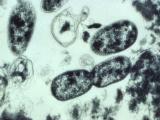Health officials in New York City recently announced that they are investigating a cluster of Legionnaires' disease cases ln the Lennox Hill section of Manhattan.
Last year, the US Centers for Disease Control and Prevention (CDC) said that Legionnaires' cases have quadrupled since 2000, led by high-profile outbreaks in New York City, Illinois, and Michigan. Also, the CDC recently raised concerns about Legionnaires' cases in healthcare settings, especially long-term care facilities.
Seven illnesses, 1 fatal
In a Jun 16 statement, the New York City Department of Health and Mental Hygiene (DOHMH) said seven illnesses have been confirmed over the past 11 days. Four people are recovering in the hospital, two have been discharged, and one person in his or her 90s with underlying health conditions has died.
Authorities are sampling and testing all cooling tower systems within a half-kilometer radius of the affected area of Lennox Hill.
The health department is urging New Yorkers who have respiratory symptoms such as fever, cough, and chills to promptly seek medical care. In a typical year, about 200 to 400 Legionnaires' cases are reported in New York City.
Caused by exposure to Legionella bacteria, the symptoms—which can also include muscle ache, headache, fatigue, loss of appetite, confusion, and diarrhea—usually occur 2 to 10 days after exposure. Most cases have been linked to plumbing systems that harbor the bacteria, such as cooling towers, whirlpool spas, hot tubs, humidifiers, hot water tanks, and condensers of large air conditioning systems.
Risk factors for contracting the disease include being middle-aged or older, a smoker, or having chronic lung disease or a weakened immune system.
Following Legionnaires' disease outbreaks in 2015, New York City passed a law to curb Legionella growth in cooling towers, becoming the first US city to adopt robust rules regarding cooling tower maintenance. The changes to the city's health code went into effect in May 2016.
To further reduce the disease burden, the health department last year announced a plan to reduce Legionnaires' disease outbreaks in the city, which included hiring more inspectors, training city workers to inspect cooling towers, and expanding lab-testing capacity. Since the measures went into effect, the NYC DOHMH has monitored more than 4,000 cooling tower systems, including more than 6,100 cooling towers, in New York City.
Risk factors for L longbeachae infections
In other developments, researchers from New Zealand recently reported results from a case-control study that explored risk factors for infections with Legionnaires' disease caused by Legionella longbeachae, a bacterium found in soil and compost products, which they suspect is an underdiagnosed cause of the disease.
New Zealand has the world's highest incidence of Legionnaires' disease, partly owing to more rigorous testing.
For the study, the researchers looked at people who were hospitalized in Canterbury region, which contains the city of Christchurch, with Legionnaires' disease in the summers of 2013-14 and 2014-15. In 2010, Christchurch implemented enhanced testing of respiratory specimens, which led to a more than fourfold increase in the number of detected Legionnaires' disease cases. For comparison, they included as controls people age 30 and older chosen from electoral rolls.
Based on an analysis of 31 cases and 172 controls, the scientists determined that risk factors were chronic obstructive pulmonary disease (COPD), history of smoking 10 or more years, and exposure to compost or potting mix.
Gardening behaviors linked to the disease included having unwashed hands near the face after tipping or troweling compost or potting mix. Mask or glove use didn't seem to be protective.
The investigators said precautions might include avoiding inhaling compost and observing hand hygiene. They also said long-term smokers and those with COPD should be especially careful.
See also:
Jun 16 NYC DOHMH press release
Jun 7, 2016, CIDRAP News story "CDC: Waster system management key to curbing rise in Legionnaires' "
Jun 6 CIDRAP News story "CDC: Most healthcare-acquired Legionnaires' cases could be prevented"
Jun 15 Emerg Infect Dis report




















